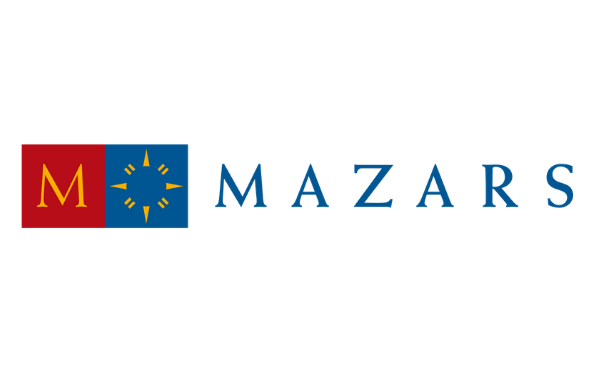Responsible Banking Practices

- The report assessed 30 banks in terms of their integration of environmental, social and environmental criteria. governance in their commercial strategies and risk management structures.
- No bank was rated "excellent" when it comes to sustainability, but some are leading the way with innovative approaches that scored highly in most of the criteria analyzed.
- Limited evidence of a sustainable approach in most criteria for more than half of the banks assessed, with specific measurable targets not yet common practice.
- Banks focusing on environmentally responsible products, but with an offer that does not yet fully address socio-economic issues.
Mazars, an international consulting and auditing firm, has released a global assessment (Responsible Banking Practices) of how banks are incorporating sustainability into their business practices. The results show that the environmental, social and governance (ESG) criteria are not yet fully integrated into banks' strategies and indicate that more responsible banking practices can be achieved if banks integrate these criteria into their risk management framework and measure them more effectively.
The results presented in the report 'Responsible banking practices: benchmark study 2020' reveal that only three of the 30 banks assessed demonstrate best practice in a wide range of sustainability factors, with ten banks showing a sustainable approach in some factors and more than half (17) of the banks showing a limited sustainable approach in most factors.
After evaluating banks such as Barclays, BBVA, Citi, Credit Suisse, Santander and UBS, Mazars did not identify any bank as 'exceptional' - a score reserved for banks with a positive score in more than 90% of the criteria analyzed. The benchmark criteria included organizational culture and governancerisk management, monitoring processes, reporting, targetsamong others.
The report is presented at a time when banks are reflecting on their purposes and values, as new social movements put pressure on financial agents to invest not only in an environmentally sustainable way, but also in a socially inclusive way.
Leila Kamdem-Fotso, Partner at Mazars, says: "Covid-19 has reaffirmed the positive role that the banking sector can play, working with governments and regulators to keep the economy afloat. These results should remind banks that the crisis is an opportunity to look beyond immediate priorities, reassess their goals and values and use some of the best practices outlined in our report to truly incorporate ESG factors into investment decision-making for the good of the business, their clients and society."
Virginie Mennesson, Head of Regulatory Affairs at Mazars in the UK, adds that: "Regulators expect the banking sector to play a key role in the post-Covid-19 recovery effort. In Europe, they see a robust recovery as one that promotes long-term 'green' and sustainable investments to ensure a fair and resilient future for all. The results of this study show that some banks are leading the way, with the majority still having some work to do to fully incorporate ESG factors into their corporate strategy, governance and risk management processes."
Banks begin to focus on socio-economic issues
The survey finds that most banks have adopted or are implementing voluntary ESG reporting standards, but the majority (57%) have not yet fully integrated these factors into their risk management processes, using both qualitative and quantitative approaches.
At the same time, the majority of banks have supported sustainability structures and launched social responsibility programs, but the definition and disclosure of sustainability targets is not yet common practice. And although all the banks evaluated offer environmentally responsible products, only 43% develop a product offering that truly addresses socio-economic issues.
Targets and incentives
The report concludes that the introduction of explicit targets could help banks increase their ESG achievements. Only 271 TP3Ts have a specific and measurable set of socio-economic objectives in line with sustainability frameworks. On the other hand, only 131 TP3Ts of the banks assessed have financial incentives linked to sustainability for their senior management.
A wider range of commitments
The report cites recent examples of banks that are trying to meet social targets. For example, Barclays is incorporating human rights considerations into its procurement process. due diligence of clients. Citi will develop an environmental and social action plan as a condition of financing when there are gaps in international standards and in a client's environmental and social practices. The report also mentions Goldman Sachs (which was not one of the banks assessed), which will only advise companies in IPOs where there is a diverse Board of Directors that can prove the effort made in this area.
About the study
The analysis is based only on public information from 30 banks (CSR 2018/2019 and annual reports.) Mazars used an evaluation matrix that covered: culture and governance; risk management; disclosure standards and reporting; frameworks, initiatives and targets, and products and services. The analysis is focused on European banks, with the inclusion of some banks from South East Asia, Africa and America for illustrative purposes. The selected banks have demonstrated a significant interest in the issue of sustainability, participating in UNEP FI initiatives and/or being signatories to the 'Principles for Responsible Banking' document. The banks assessed include Barclays, BBVA, Citi, Credit Suisse, Santander, Standard Chartered and UBS. For the full list, see the report here.
About Mazars Group
Mazars is an international, integrated partnership specializing in auditing, accounting, consulting, tax and legal services[1]. It operates in 91 countries and territories worldwide, relying on the expertise of 40,400 professionals - 24,400 in the Mazars integrated partnership and 16,000 through the Mazars North America Alliance - to support clients of any size at every stage of their development.
www.mazars.com | https://pt.linkedin.com/company/mazars-portugal | https://pt-pt.facebook.com/MazarsPortugal
[1] Where permitted by local legislation.

